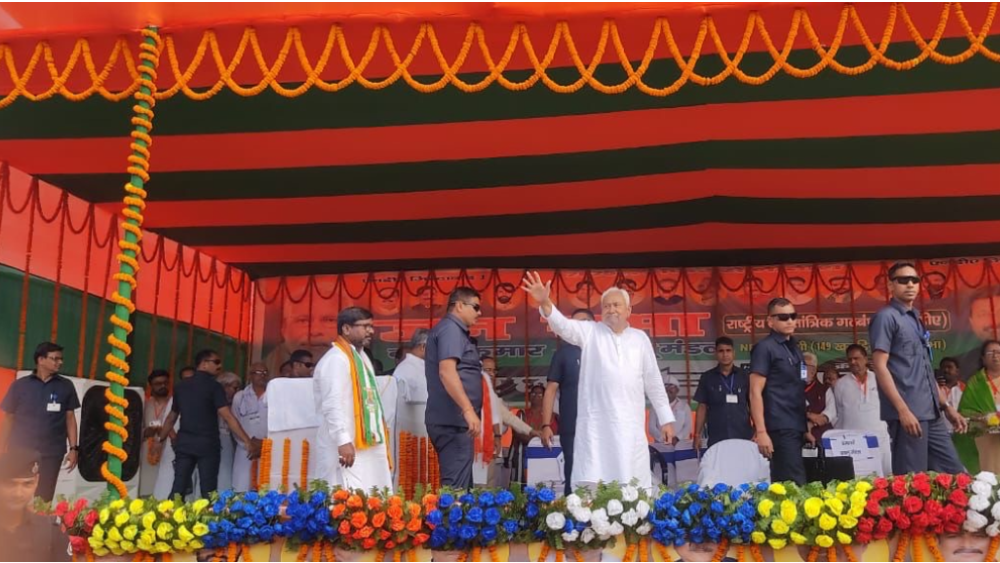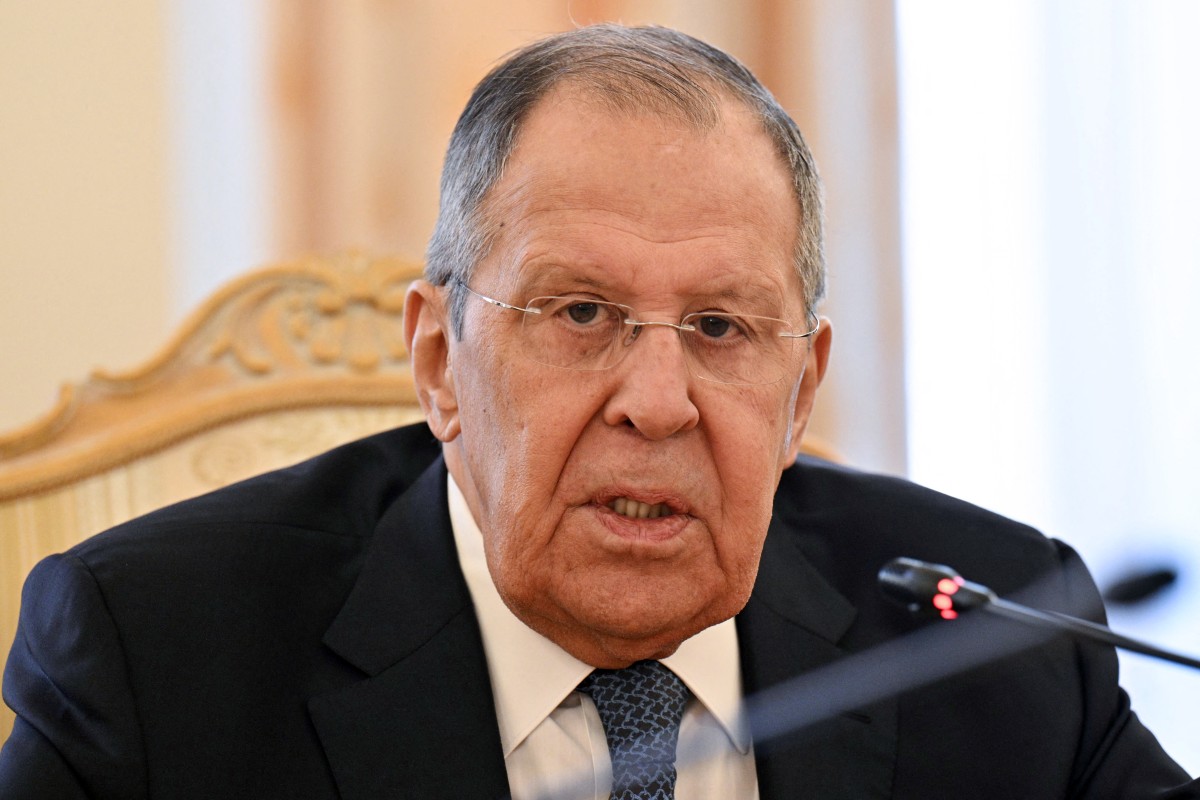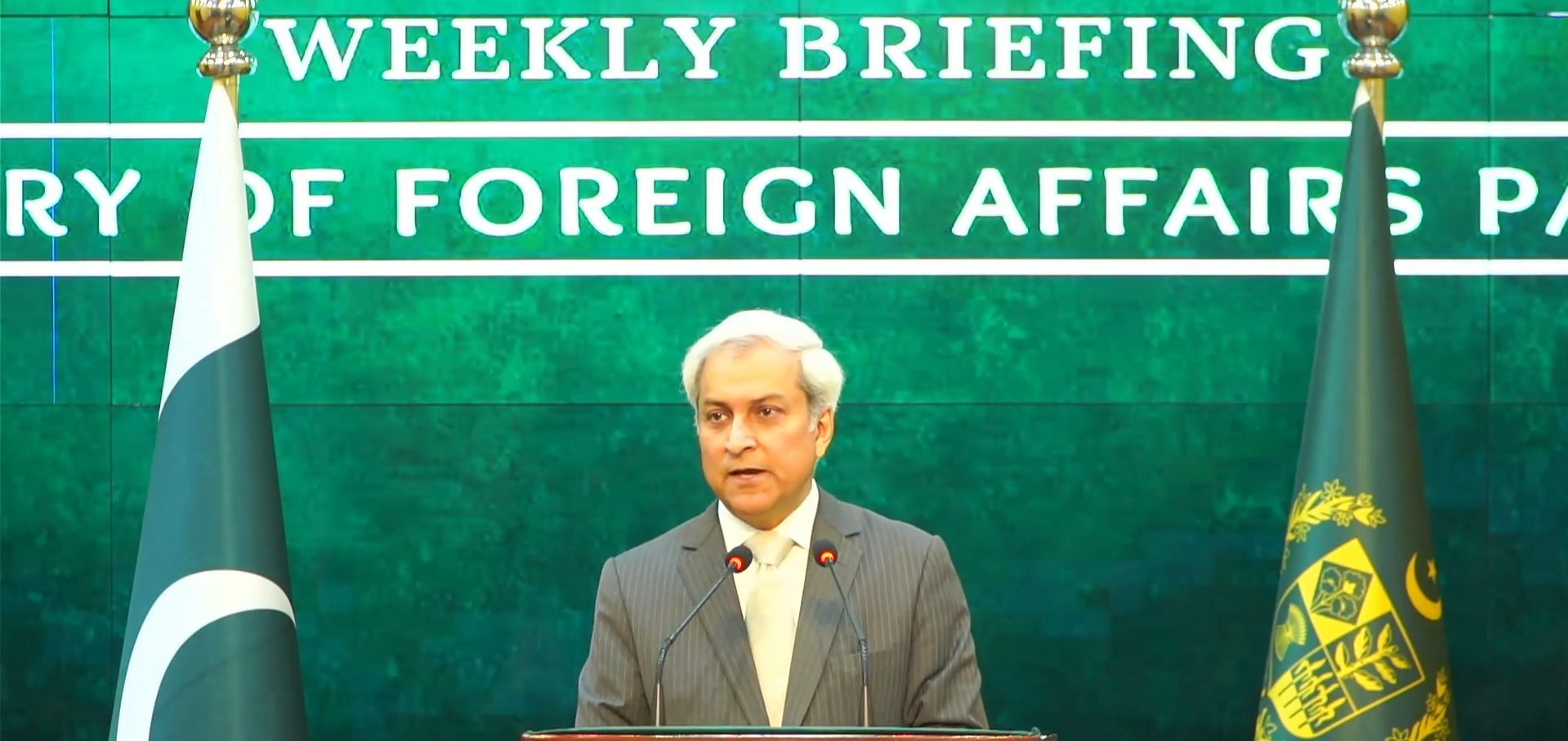
Photo: X via @NitishKumar
ISLAMABAD: Bihar’s chief minister Nitish Kumar’s pre-poll INR140 billion women’s welfare payout has triggered an Indian Opposition uproar after the National Democratic Alliance (NDA) swept to victory in Bihar, according to an Indian media report.
The alliance -- which is led by Indian Prime Minister Narendra Modi’s Bharatiya Janata Party -- in Bihar registered a clear victory on Friday (Nov. 14), with chief minister Kumar set for a fifth consecutive term, as the coalition won 202 of the 243 seats in the state.
The large-scale direct benefit scheme, dubbed the Mukhyamantri Mahila Rojgar Yojana (MMRY), credited INR10,000 each to over 10 million women just days before the Election Commission of India announced the polling dates for the 243-member assembly.
At least INR140 billion was disbursed, according to the media report.
The Indian Opposition’s anger has only grown since Friday.
Last-minute welfare push
Opposition leaders say Nitish Kumar’s last-minute welfare push shaped voter behavior.
Senior Indian journalist Rajdeep Sardesai has called it “vote khareedi” elections or “vote buying” elections in a vlog on his official YouTube channel. “Why do you need to steal votes when you can buy them?” Sardesai said.
Nationalist Congress Party (NCP-SP) chief Sharad Pawar, a veteran from the INDIA bloc's side of the political spectrum, said on Saturday that the scheme “generated a favorable effect for NDA", citing a similar pattern during the Maharashtra elections, according to the report.
Higher women’s voter turnout
According to poll panel data, women’s turnout in Bihar was 72%, significantly higher than men’s 63%, which is being seen as a major factor boosting Nitish Kumar's pro-women image in general, the report states.
Scheme timing and money transfer
The Bihar cabinet cleared the MMRY scheme on Aug. 29.
Under the scheme, 14.1 million women received INR10,000 each before polling.
Prime Minister Narendra Modi formally launched MMRY on Sept. 26.
Opposition smells a rat
On Oct. 6, the Election Commission of India (ECI) announced the election schedule, which prompted the Opposition to become suspicious soon after.
Opposition parties allege that one instalment of the payout was released on the very day elections were announced, and note that state-funded advertisements in October highlighted upcoming payment dates of November.
Reflecting on the results, Mukesh Sahani of Vikassheel Insaan Party (VIP) from the Mahagathbandhan, whose party drew a blank, argued that “our mothers and sisters who live in poverty felt that the money would change their lives."
“Naturally, they voted for that promise,” he said, calling the scheme “a clear case of the government using state money as a campaign lever.”
‘Breach of code’
The poll code of conduct bars governments from announcing new financial grants or using public funds in ways that may influence voters from the moment elections are declared.
The guidelines state that the party in power “shall not use its official position for the purposes of its election campaign” and that it cannot issue new financial promises or disbursements once the code is active.
Opposition parties argue that continuing MMRY payments after Oct. 6 constituted a breach of the code.
‘Mute spectator’
Nationalist Congress Party (NCP-SP) chief Sharad Pawar asked why the ECI allowed distribution of scheme funds “during Bihar polls.”
The ECI has not issued any formal clarification on the matter so far.
Officials have maintained informally that schemes approved and notified before the MCC cannot be halted unless a new benefit is announced or expanded, a distinction the commission has made in other states, according to the Indian media report.
But this has not been the case with the poll body always; it has strictly intervened in the past.
According to the report, the ECI stopped the Andhra Pradesh government from disbursing INR141.65 billion under six direct benefit transfer schemes days before voting.
The commission held that although funds were released earlier, the timing of the transfer, May 10 and 11, just before polling, could influence voters.
The report said that in Tamil Nadu, the poll authorities have twice in the past two decades taken strong action against ongoing welfare schemes. The schemes were already under implementation before the election schedule was announced, the report said.
According to another Indian media report, Congress's Ashok Gehlot blamed the Election Commission for being a "mook darshak" (mute spectator) as money was distributed during the polls, suggesting it was a form of "vote chori" (vote theft).
Latest News
Russian says 'no deadlines' to end Ukraine war
23 MINUTES AGO

Merz says Germany, China must overcome trade gaps 'together'
3 HOURS AGO

Pakistani, European ministers agree on coordinated strategy to combat illegal migration
3 HOURS AGO

UN approves first carbon credits under Paris Agreement
3 HOURS AGO

Pakistan to raise concerns over Israel actions in West Bank at OIC Ministerial: Foreign Office
4 HOURS AGO

